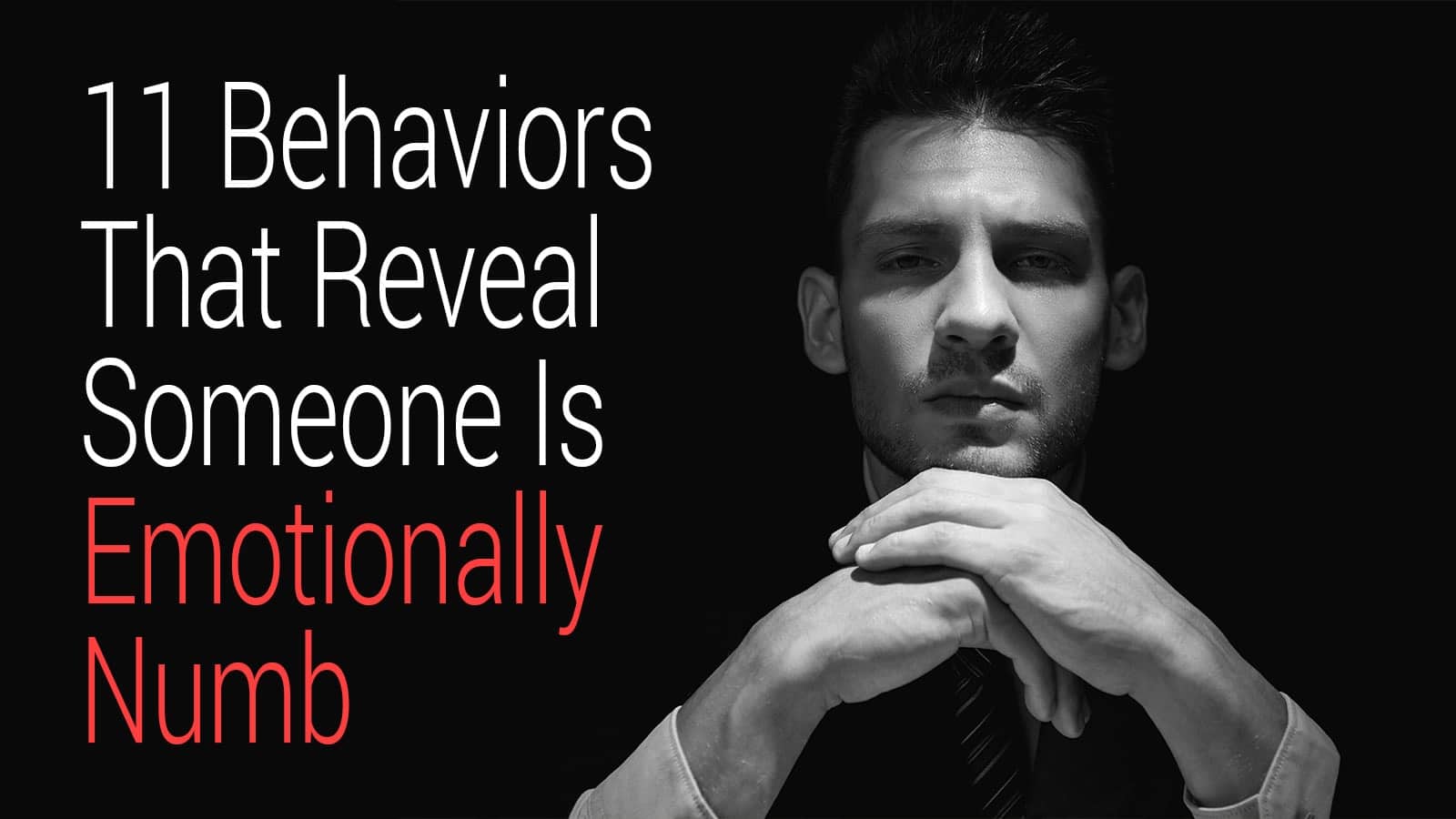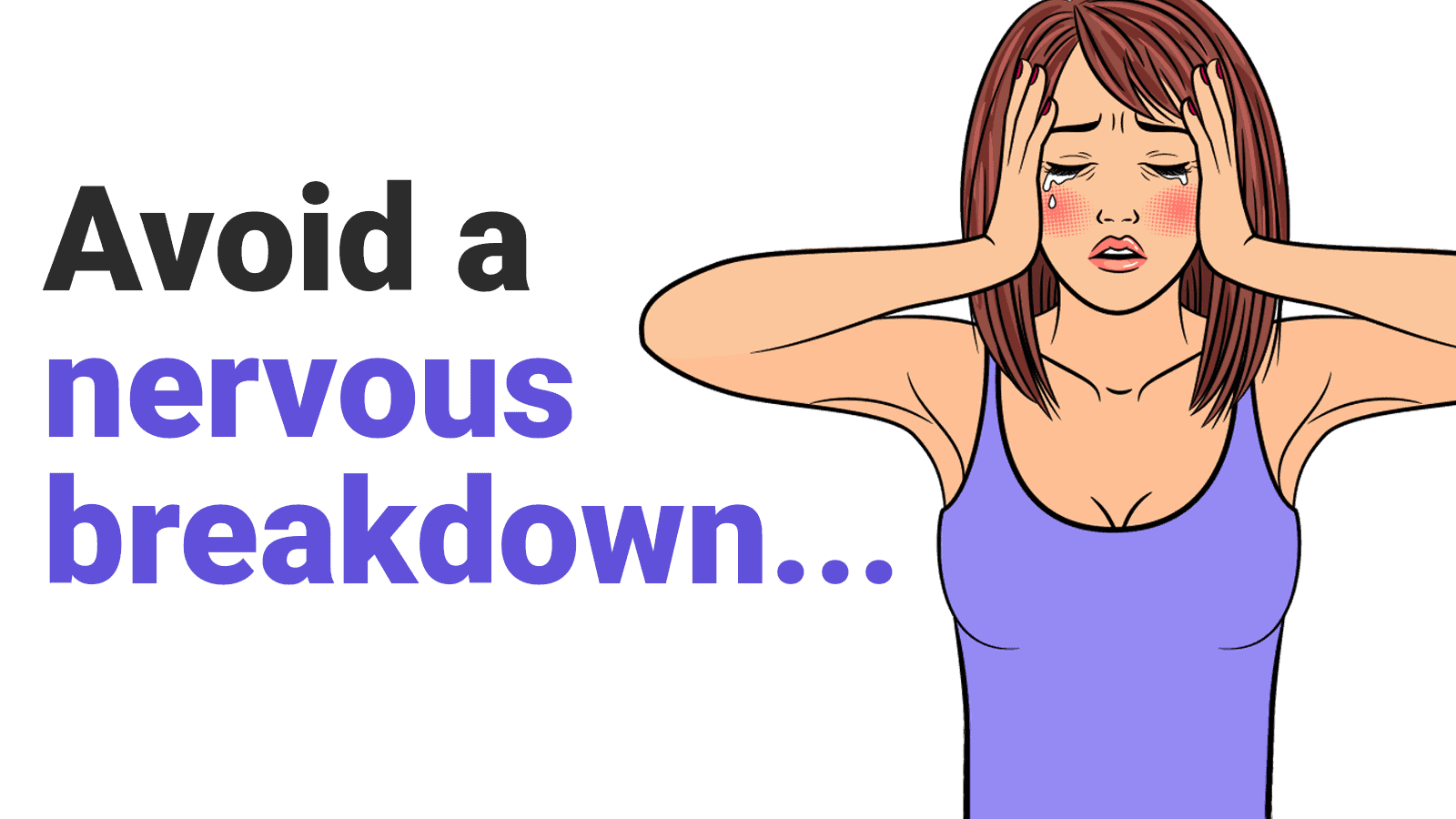Emotional numbness normally occurs as a coping mechanism, or a way of blocking out painful experiences or emotions. The following disorders and conditions can cause someone to become emotionally numb:
- depression
- anxiety
- PTSD
- stress
- grief
- drug abuse
- trauma
If you feel emotionally numb, you’ve likely been through a lot in life. Your mind needs a break, and as a result, you start to switch off both negative and positive emotions. You might be thinking, “What’s wrong with feeling happy?” Well, we can’t feel joy without experiencing pain, so a person who doesn’t feel emotions would rather not go on that rollercoaster ride anymore.
A person who dissociates from themselves and their emotions often feel that life seems a lot easier when emotions don’t get in the way. Of course, it feels great when you make it into the clouds; falling back down into that dark abyss over and over again can easily break the spirit, however.
Feeling emotionally numb doesn’t usually just happen; it’s a slow process that causes a person to slowly remove themselves from life. It doesn’t happen by choice, either; a person who feels nothing once felt everything so deeply, but the pain of this destroyed them. So, their brains responded by shutting off their emotions in order to deal with the trauma.
If this sounds familiar, or like someone you know, read on to find out more about what they might be going through.
Here are 11 behaviors that show someone is emotionally numb:
As we move through this list, keep in mind that detaching from your emotions in certain situations doesn’t necessarily point to a problem. For example, if you need to assert boundaries, assist in an emergency situation, or remove yourself from a toxic conversation or environment, feeling emotionally numb can actually prove beneficial. It becomes a problem when the numbness takes over your whole life and mind, keeping you from feeling joy at all.
They isolate themselves.
For a person who feels emotionally numb, socializing and going to events won’t bring them happiness. They don’t see much of a point in trying to connect with others when they don’t even feel connected to themselves. So, instead of using all that energy to make friends or attend events, they’d rather sit at home and play games, watch TV, or engage in other relatively mindless activities.
A person who dissociates from themselves and life may find “normal” activities overstimulating; they prefer to spend most of their time at home, away from overpowering stimuli.
A person who feels emotionally numb will have trouble expressing emotions.
In conversation, they may appear dull and bored. They won’t seem happy or sad, just neutral. Additionally, they might not talk much and won’t engage with you unless you go and talk to them first. They may respond with one-word answers and will appear hard to read. They don’t do all of this on purpose or to be rude, of course; it’s just a natural defense mechanism.
They will appear almost lifeless.
They won’t show much interest in anything unless they really have a passion for it. Most of the time, they’ll seem almost robotic in nature, going through the motions of life and just trying to stay afloat. At some level, all of us experience this. In someone who is emotionally numb, however, this becomes their operating system. They don’t know how to express emotion without feeling overwhelmed, so they just do what needs to get done in order to survive.
It might seem like they’re on a whole different planet.
People with dissociative symptoms might seem like they’re not even present. Their eyes might have lost their twinkle, their smile may appear forced, and overall, they just don’t seem “all there.” Reality can get painful, so they try to remove themselves from it. Thus, they don’t have to deal with the suffering.
Psychotherapist Imi Lo says, “Though it sounds paradoxical at first, many emotionally intense and sensitive people struggle with ‘emotional numbness,’ a kind of internal deadness or emptiness that permeates their whole being and strips them of the joy and fullness that life has to offer.”
Like most of our coping mechanisms in life, detaching ourselves from a situation or event that causes pain helps us survive. Everything we do, essentially, aims to preserve our life and shield us from threats. So, it doesn’t come as a surprise that disconnecting from our environment might help save our life or keep us sane in times of extreme stress.
They might talk in a monotone way.
Because of their inability to feel extreme emotions, people who feel emotionally numb might appear robotic in conversation. They don’t get much enjoyment out of life for whatever reason, so they won’t get too excited about everyday topics of conversation. Of course, if you bring up something they feel passionate about, you might see them become a bit more animated than usual.
They might share that they feel like a passive observer in their life.
If you really get to know someone who feels emotionally numb, they might share with you that they feel disengaged in life, like they are watching a movie of themselves. Despite their best efforts to participate, they just feel that they can’t get in on the action. They feel stuck in a perpetual out-of-body experience and don’t know how to connect to their body and feelings.
Someone who feels emotionally numb may feel that life is just a dream.
Expanding on the last point, someone who feels disconnected from themselves may not even feel real. In other words, they may feel like a puppet on a string being pulled in different directions by an invisible force. They may feel that they have no control over their lives, so their solution is to not get too caught up in what happens. Everything feels fake and foreign to them, as if they came here from some other planet or world.
They won’t show interest in many activities.
You get the gist by now; they don’t feel much in life, so activities won’t pique their interest most of the time. Those who are emotionally numb may do things just to pass the time, such as watch shows or play video games, but they might not actually enjoy these activities. They are just fillers for them.
They might feel that everything (including themselves) is pointless.
People that feel emotionally numb may have a nihilistic view of the world. They don’t believe life has meaning, so why give it meaning? They don’t feel that they have any purpose in being here, so why get caught up in the drama of being human? The world doesn’t make sense to them, and they’ve stopped trying to understand it a long time ago.
An emotionally detached person won’t show strong emotions in intense situations.
Because they have disconnected from their emotions, they may not even show much concern in a situation that warrants a strong response. For example, in a crisis or emergency, they might appear stoic and calm while everyone else freaks out. This does have its advantages, but stuffing emotions down can lead to a blowup later. However, in a crisis, remaining collected and level-headed could actually allow the person to provide better help to those in need.
If they ever do feel anything, they won’t know how to control their emotions.
If they finally do allow their emotions to surface, the intensity will rise very quickly. In a person who feels emotionally numb, they usually only feel something if they’ve allowed their emotions to build up for too long and something sets them off. A stressor such as a breakup, divorce, death in the family, loss of employment, or health crisis could spark intense emotions.
Because they never feel anything, they don’t have much practice in handling their emotions healthily, so their feelings might get the best of them.
Final thoughts
Feeling emotionally numb does have its advantages (evolutionarily speaking), but in the modern world, cutting oneself off from any feelings can cause isolation and depersonalization. No one should cling to their identity or emotions for comfort, of course, but the answer lies in balance. You don’t want to let your feelings take control of you, but you also don’t want to shut yourself off from sadness (and therefore, happiness.)
If you find yourself feeling disconnected and numb in life, seek the counsel of friends, family, or a licensed therapist. They can help you find ways to connect to yourself again and reclaim your joy in life. No one should have to move through life on autopilot; while this can protect you from painful experiences, it also shields you from people and things that can bring out the light in you.
We leave you with thoughts from Quora user Scarlett Trillia: “Be vigilant, be gentle with yourself, and don’t forget that knowing darkness is the only way to deeply appreciate the light once you’ve found it.”


















